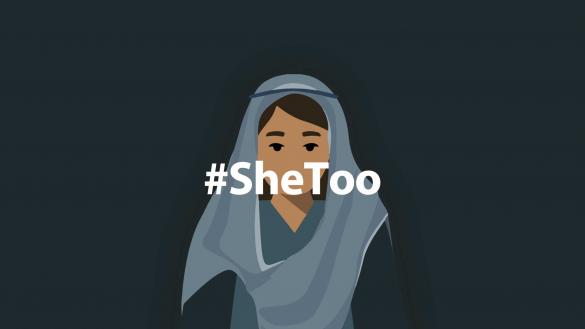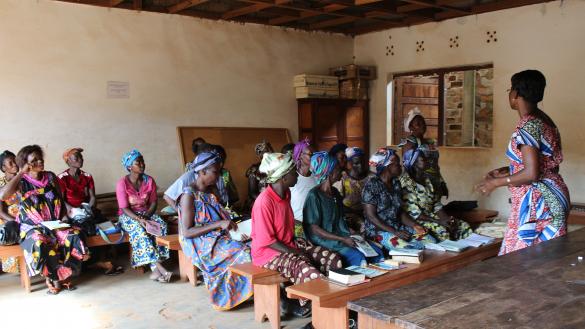Author: Lisa Cherrett, 8 March 2021
The stories of Scripture reflect a patriarchal world – but as Lisa Cherrett finds, there's a very different story to be told.
The culture of biblical times and places was overwhelmingly patriarchal: men, not women, were expected to be active in public life, taking the lead in affairs of the family, religion and politics. Much has changed for women in our society today, but we have to admit that men’s contributions are still valued more highly and celebrated more loudly than women’s, and the stories we tell ourselves about our place in the world are most often the stories of men.
It’s not surprisingly, given its cultural background, that most of the stories in the Bible have named men as their central players, those whose actions move the narrative forward in bold and decisive ways. From Abraham and Moses to the prophet Elijah and King David, through to ‘the Twelve’ male disciples of Jesus, and the apostle Paul, the Bible shows us men as the main actors in the unfolding story of God’s people.
So does the Bible uphold the patriarchy? Is it even, as some people would suggest, ‘anti-women’?
Elaine Storkey’s book Women in a Patriarchal World would answer with a resounding ‘No’. It highlights 25 illuminating and often surprising stories of women in the Bible, across both Old and New Testaments, whose positive actions challenged the dominance of the patriarchy and brought significant change to their nation or local community.
In bite-sized chapters, each of which could be read in under ten minutes, Storkey retells the story of one or more of these women, with helpful insights into the culture of the time and the particular difficulties that the female characters would have been facing in a male-dominated world. She then changes the focus, showing how the biblical story might help women to act in similar situations today. Each chapter finishes with two ‘questions to ponder’, inviting deeper engagement with both the biblical story and the contemporary challenges.
Alongside the more famous names, such as Deborah, Ruth and Mary Magdalene, the book includes some less familiar, often overlooked characters. In every case, these women are picked out in the Bible as examples to be admired and followed. So it praises Shiphrah and Puah, the midwives who disobeyed the Egyptian Pharaoh’s order to kill newborn Hebrew boys. It gives credit to the five daughters of Zelophehad, whose bold rebellion succeeded in changing their nation’s inheritance laws. It praises Abigail, who acted decisively to prevent her own husband’s foolishness from having catastrophic consequences. It names Joanna as one of the women whose financial support was so crucial to the success of Jesus’ ministry.
Elaine Storkey shows us these and many more women whose bold actions made a huge contribution to the story of the people of God. In addition, she connects them with a very wide range of contemporary challenges, including toxic nationalism, financial mismanagement, prostitution and social inequalities of all kinds. These are not just ‘women’s issues’; they are human issues, which women – following the example of their biblical sisters – can address with empathy, generosity and a willingness to take risks.
The stories told in this book are notable because they name and celebrate the diverse women who played important roles in the epic biblical narrative. They show that the Bible, though rooted in its own times and places, actually subverts the dominance of the patriarchy in significant ways, bringing the positive contributions of women into the spotlight.
Women in a Patriarchal World: Twenty-five empowering stories from the Bible is published by SPCK, price £9.99.
Lisa Cherrett is part of Bible Society's Publishing team
Share this:

Join us for #SheToo, a seven-part podcast series exploring some of the texts that include violence against women in the Bible. These 'texts of terror' have, at times, been used to oppress women or have just been ignored. But what happens if we take a closer look?

Six Celebrated Women in the early Church
There are a lot of misconceptions about the Bible’s portrayal of women, particularly in Paul’s letters. But women were celebrated in the early Church and by Paul himself. Let’s take a look at some of the women that played an important role in the early Church

The Literacy Ladies of The Central African Republic
This International Women's Day we're celebrating the amazing women in the Central African Republic. Written off by their society and in the midst of civil war, Ken Dachi discovers how they've been empowered by Scripture in their spiritual lives – and beyond.